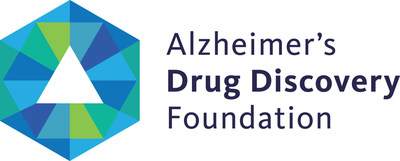A more robust pipeline of novel targets spanning all clinical trial phases and an ongoing focus on therapeutics driven by the biology of aging offers new hope for treating Alzheimer’s disease, and slowing or stopping its progression, according to the Alzheimer’s Drug Discovery Foundation (ADDF).
|
NEW YORK, Nov. 3, 2021 /PRNewswire/ -- A more robust pipeline of novel targets spanning all clinical trial phases and an ongoing focus on therapeutics driven by the biology of aging offers new hope for treating Alzheimer's disease, and slowing or stopping its progression, according to the Alzheimer's Drug Discovery Foundation (ADDF). Today, the ADDF announced that it will issue its 2021 Clinical Trials Report (embargoed for Tuesday, November 9, 2021), an analysis of 118 Alzheimer's clinical trials, in conjunction with the 14th Annual Clinical Trials on Alzheimer's Disease Conference (CTAD) in Boston, November 9-12, 2021. As shown in the report, today's pipeline goes well beyond the once traditional focus on removing toxic build-up of amyloid and tau proteins in the brain. "This report underscores the increased diversity and robustness of the Alzheimer's pipeline, with the majority of the trials exploring novel pathways targeting the many underlying causes of Alzheimer's that go awry during the aging process," says Dr. Howard Fillit, Founding Executive Director and Chief Science Officer of the ADDF, which has long advocated a scientific strategy based on the biology of aging as an effective approach to prevent and treat Alzheimer's disease. "This is an incredibly exciting time in Alzheimer's research, moving us toward the ability to have precision combination therapies, just like those used to treat many cancers today." Of the 118 disease-modifying trials, three in four (77%) focus on targets other than beta-amyloid or tau, like brain inflammation, breakdown of neurons and electrical signaling pathways, and inefficiencies in how the brain uses energy. The majority are in phase 2 (60%), when a drug is further evaluated for safety and tested for efficacy in larger numbers of people. There is also an increased emphasis in the pipeline on repurposing existing drugs for use in Alzheimer's patients. Nearly 35% of today's Alzheimer's clinical trials are studying drugs that already have FDA approval for other diseases, which speeds up research and cuts costs because their safety in patients is already established. Alzheimer's disease affects 55 million people globally, with 6 million in the U.S. alone, and is among the top 10 causes of death. "The holy grail for Alzheimer's disease is new methods of prevention, diagnosis, and treatments to slow the disease's progression, and allow patients to better retain their cognitive function and quality of life. We believe research into previously unexplored pathways will get us there," says Dr. Fillit, noting that Bill Gates, who partnered with the ADDF on its Diagnostics Accelerator shared this optimism in a recent Gates Notes piece. "Many new advances in the field are due to the development of biomarkers, which play an essential role in allowing researchers to enroll the right patients in clinical trials and to monitor how the drugs are working," adds Dr. Fillit. The ADDF funds one of the largest and most diverse clinical trial portfolios with over 30 active trials that explore the many complex and underlying causes of Alzheimer's, including changes in proteins, chronic inflammation, vascular disease, loss of synapses, and changes in genes. As part of its mission to rapidly accelerate the discovery and development of drugs to prevent, treat and cure Alzheimer's disease, the ADDF regularly reviews the Alzheimer's research landscape to better understand current research and devise the best strategies for investing ADDF resources to speed success. The ADDF's Clinical Trials Report is based on a review of more than 200 ongoing Alzheimer's clinical trials. In addition to the 118 disease-modifying treatments that are the cornerstone of the research pipeline, the report provides details on nearly 100 more trials testing treatments that target behavioral symptoms connected to Alzheimer's, such as anxiety and agitation, trials looking at ways to prevent Alzheimer's from the beginning, and trials validating new biomarkers that can be used on the frontlines to improve early detection and diagnosis of the disease. Nine ADDF-Funded Investigators to Present at CTAD The range of topics covered by nine ADDF-funded researchers at CTAD reflects the ADDF's 360-degree commitment to tackling Alzheimer's disease, notes Dr. Fillit. They include the following: Wednesday, November 10th
Thursday, November 11th
To view the full program for the 14th Annual CTAD Conference, visit the conference website. About the Alzheimer's Drug Discovery Foundation
SOURCE Alzheimer's Drug Discovery Foundation |





